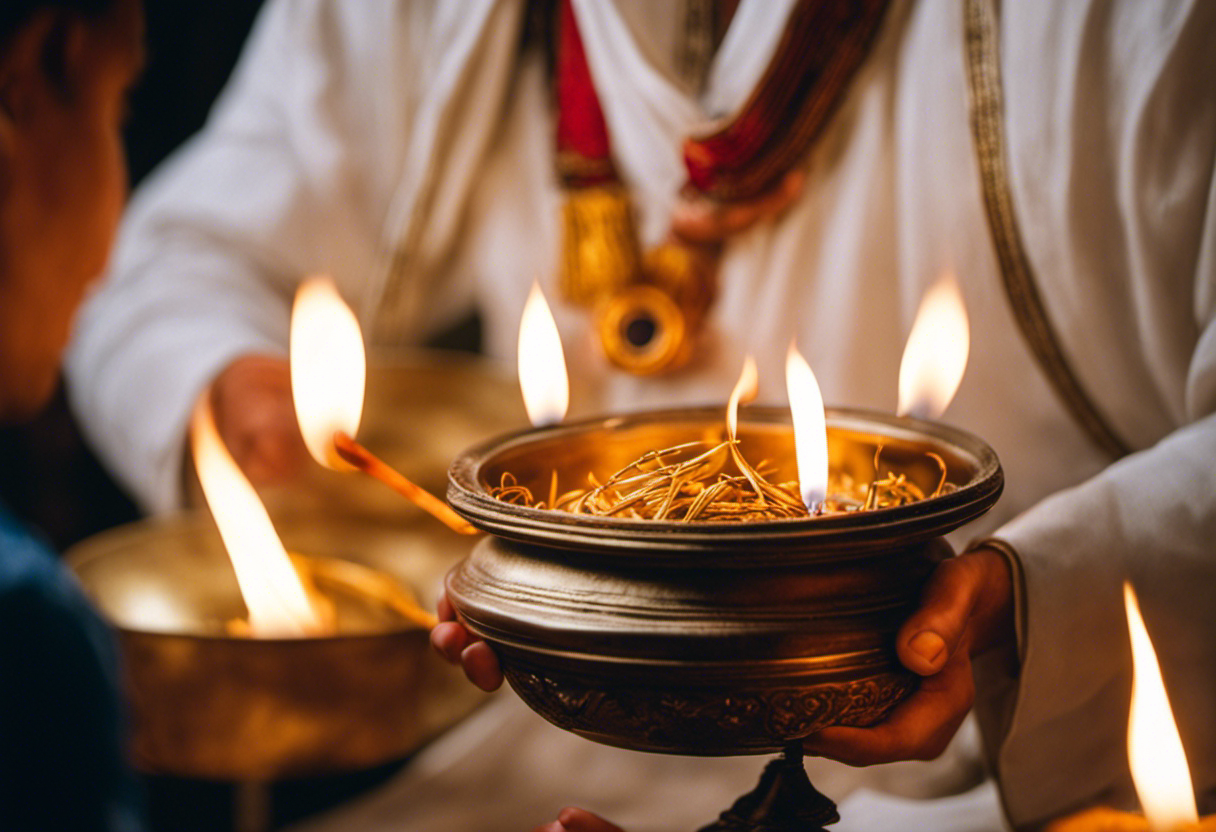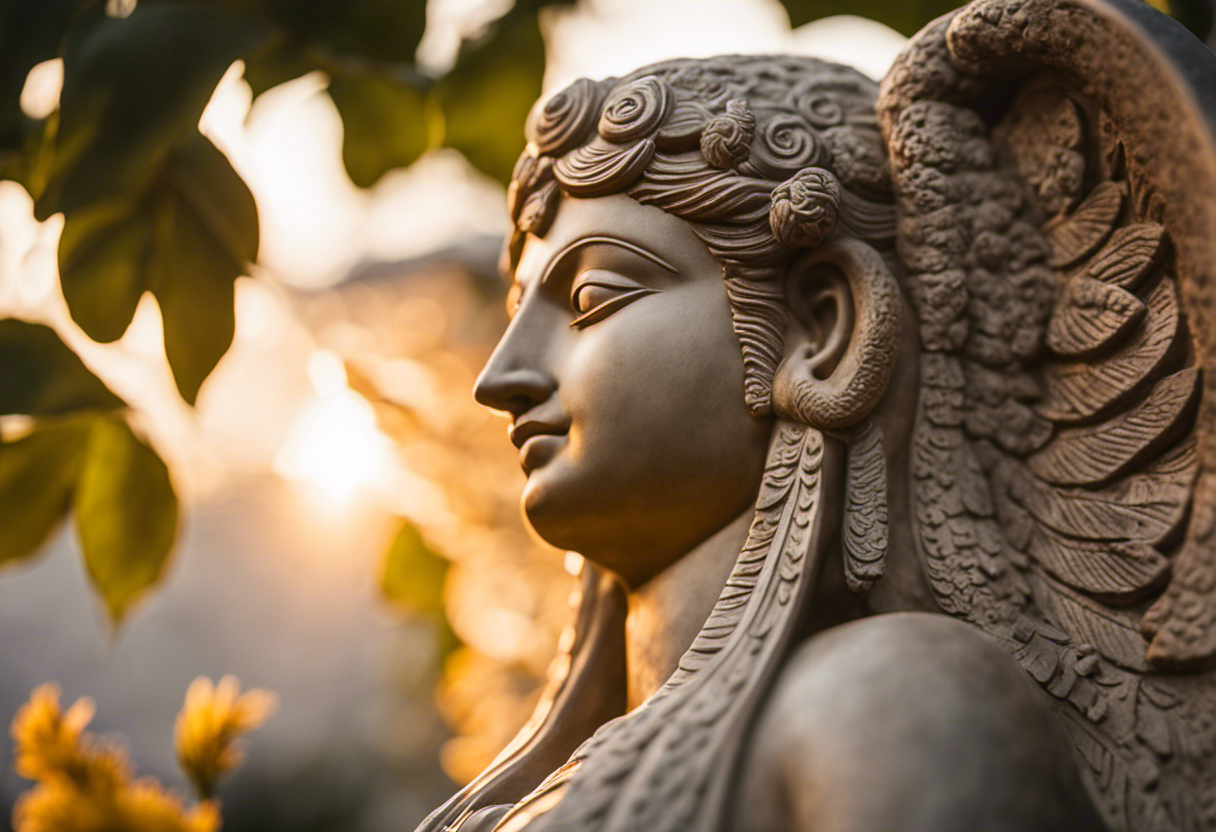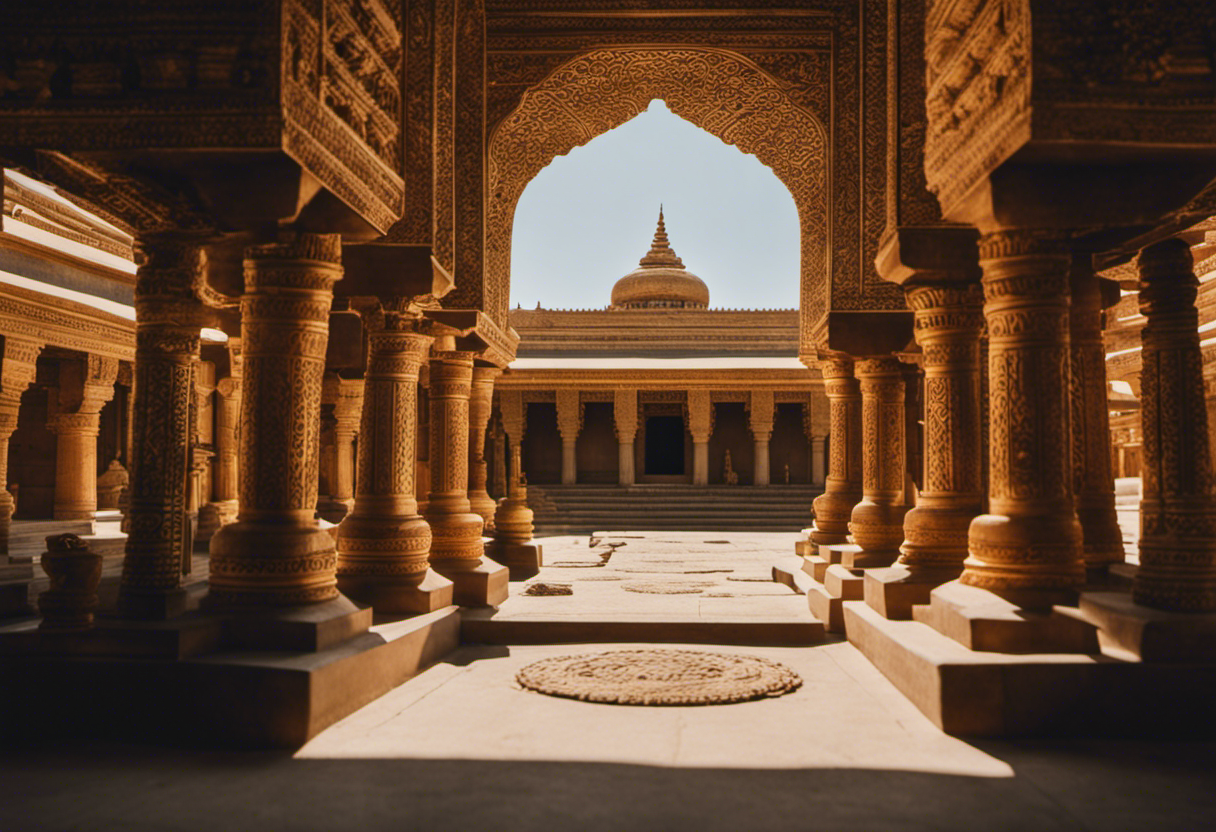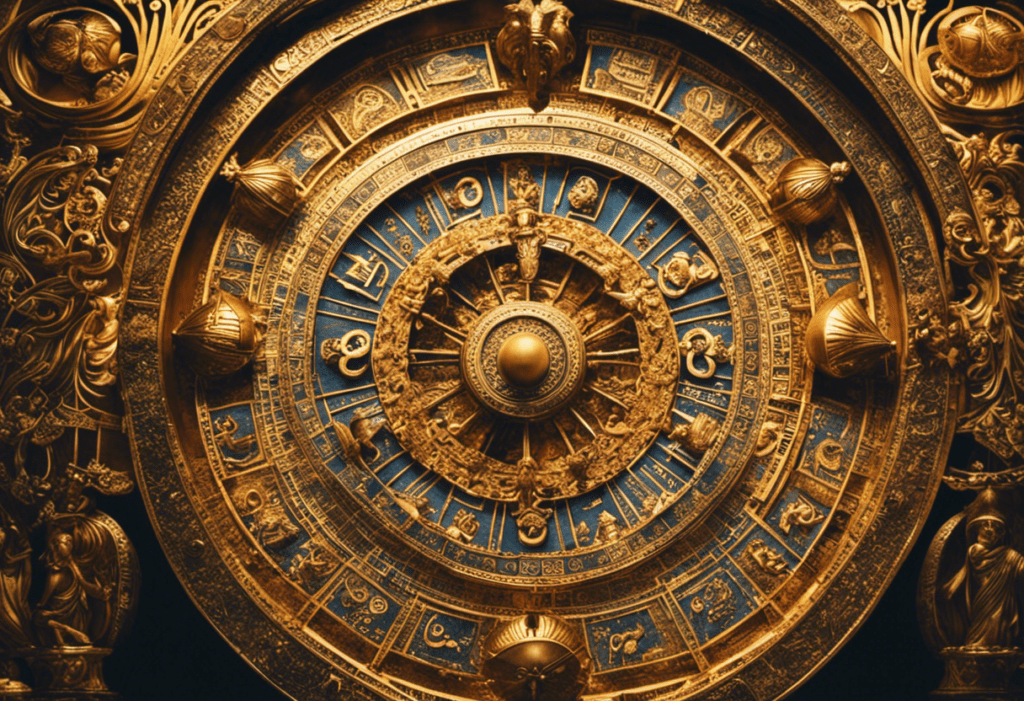In the tapestry of the Zoroastrian calendar, Gatha Days stand as vivid threads woven with historical significance, spiritual depth, and communal celebration.
Like glowing embers in the hearth of religious observance, these days illuminate the path of Zarathustra’s teachings and offer devotees an opportunity to honor and reflect upon the sacred Gathas.
Rooted in ancient rituals and adorned with symbolic meaning, Gatha Days serve as a beacon of unity and harmony, nurturing the spiritual journey of Zoroastrians.
Key Takeaways
- Gatha Days originated during the Avestan period in Zoroastrian history and are celebrated with fervor.
- The rituals and customs associated with Gatha Days are influenced by ancient Persian culture and emphasize ethical living and the pursuit of truth.
- The Gathas, composed by Zarathustra, are considered divine words of wisdom and provide a dedicated time for reflection and meditation on his message.
- Gatha Days serve as a beacon of unity and harmony for the Zoroastrian community, nurturing the spiritual journey and connection to ancient scriptures.
Historical Origins of Gatha Days


The historical origins of Gatha Days can be traced back to the Avestan period, where these sacred days were celebrated with fervor and marked significant events in Zoroastrian history. The influence of ancient Persian culture on Gatha Days is evident in the rituals and customs associated with these days.
The ancient Persians revered the Gathas, which are the hymns composed by Zarathustra, the founder of Zoroastrianism. These hymns were considered to be the divine words of wisdom, guiding the followers on the path of righteousness. Gatha Days were thus established to honor and recite these sacred hymns.
The connection between Gatha Days and ancient Zoroastrian scriptures is profound. The Gathas are a part of the Avesta, the holy scripture of Zoroastrianism. They are composed in a unique poetic meter and language called Avestan. Gatha Days provide an opportunity for the Zoroastrian community to come together and recite these hymns in unison, thereby maintaining a strong connection with their ancient scriptures.
Moreover, Gatha Days also serve as a reminder of the historical events and teachings contained within the Gathas. Each Gatha Day commemorates a specific event or theme mentioned in the hymns, such as the victory of good over evil or the importance of truth and righteousness. By observing these sacred days, the Zoroastrian community reaffirms their commitment to the teachings of Zarathustra and the principles of their faith.
The Role of Zarathustra in the Gatha Days


Zarathustra’s profound influence on the Gatha Days is exemplified through the recitation of his divine hymns, fostering a spiritual connection among the Zoroastrian community. The Gatha Days, which occur on the six most sacred days of the Zoroastrian calendar, are dedicated to the recitation and contemplation of the Gathas, the hymns composed by Zarathustra himself. These hymns are considered the core teachings of Zoroastrianism, and their recitation during the Gatha Days serves as a means of connecting with the spiritual essence of Zarathustra’s message.
Zarathustra’s teachings, as encapsulated in the Gathas, emphasize the importance of ethical living, the battle between good and evil, and the pursuit of truth and righteousness. During the Gatha Days, Zoroastrians gather in their fire temples or homes to recite these hymns, often in a group setting. This communal recitation serves to reinforce the teachings of Zarathustra and create a sense of unity and shared purpose among the participants.
Zarathustra’s role in the Gatha Days extends beyond his initial composition of the hymns. His teachings continue to guide and inspire Zoroastrians, who view him as the founding prophet of their faith. The Gatha Days provide a dedicated time for reflection and meditation on his divine message, allowing individuals to deepen their understanding and connection to the teachings of Zarathustra.
Through the recitation of the Gathas during the Gatha Days, Zoroastrians strive to uphold and preserve the spiritual legacy of their beloved prophet.
Rituals and Practices on Gatha Days


On Gatha Days, Zoroastrians engage in various rituals and practices, such as prayer and meditation, to commemorate the significance of these sacred occasions. Gatha Days are celebrated four times a year, coinciding with the six Gathas, which are hymns composed by Zarathustra himself. These hymns are considered the most sacred texts in the Zoroastrian tradition, and they serve as a guide for Zoroastrians in their daily lives.
The rituals and practices performed on Gatha Days are aimed at deepening the understanding and connection with the teachings of Zarathustra.
One of the key rituals observed on Gatha Days is prayer. Zoroastrians believe that prayer is a means of communication with Ahura Mazda, the supreme deity. During prayer, Zoroastrians recite the Gathas and other prayers, expressing their devotion and seeking guidance and blessings. This practice helps them to strengthen their spiritual connection and gain a deeper understanding of the teachings of Zarathustra.
Another significant practice on Gatha Days is meditation. Zoroastrians believe that through meditation, they can attain spiritual enlightenment and connect with their inner selves. Meditation allows them to reflect on the teachings of Zarathustra and contemplate the divine wisdom contained in the Gathas.
Overall, the rituals and practices observed on Gatha Days play a crucial role in the lives of Zoroastrians. They provide a means of connecting with the divine and seeking spiritual growth and enlightenment. Through prayer and meditation, Zoroastrians explore the significance of the Gathas and strive to live their lives in accordance with the teachings of Zarathustra.
Symbolism and Meaning Behind the Gathas


Symbolism and meaning are deeply embedded in the Gathas, offering profound insights into the spiritual and philosophical principles of Zoroastrianism. The Gathas, composed by the prophet Zarathustra, are a collection of hymns and prayers that form the core of the Zoroastrian scripture. They are revered as sacred texts and are recited during religious ceremonies and rituals. The Gathas contain rich symbolism, which requires interpretation to fully understand their significance.
One key aspect of the Gathas is their use of metaphor and symbolism to convey spiritual truths. For example, the Gathas often refer to light as a symbol of truth and righteousness, while darkness represents ignorance and evil. The sun is frequently used as a metaphor for the divine, and fire symbolizes the presence of Ahura Mazda, the supreme deity in Zoroastrianism.
Interpreting the symbolism in the Gathas is a complex task that requires a deep understanding of Zoroastrian theology and philosophy. Scholars and religious leaders have proposed various interpretations of the Gathas over the centuries, each offering unique insights into the spiritual teachings of Zoroastrianism.
Spiritual Significance of Gatha Days in Zoroastrianism


The spiritual significance of Gatha Days in Zoroastrianism lies in their ability to foster a sense of community and devotion among followers. These special days, which occur four times a year, provide an opportunity for Zoroastrians to gather and engage in spiritual introspection.
-
Gatha Days and community gatherings: During Gatha Days, Zoroastrians come together in their local communities to celebrate and honor the Gathas, which are the sacred hymns composed by the prophet Zarathustra. These gatherings serve as a reminder of the shared beliefs and values that unite the community. It is a time for collective prayer, reflection, and the reaffirmation of their faith.
-
Gatha Days and spiritual introspection: The Gathas are considered the core teachings of Zoroastrianism, and they emphasize the importance of personal spiritual growth and self-reflection. Gatha Days provide an opportunity for individuals to engage in deep introspection and connect with the divine principles of truth, righteousness, and good thoughts, words, and deeds. It is a time to assess one’s own spiritual journey, seek guidance, and make resolutions for personal improvement.
-
Gatha Days and devotion: These special days are marked by acts of devotion, such as reciting the Gathas, offering prayers, and performing rituals. By actively participating in these practices, Zoroastrians demonstrate their commitment to their faith and their devotion to Ahura Mazda, the supreme deity in Zoroastrianism. Gatha Days serve as a reminder of the importance of dedicating oneself to a spiritual path and living a life in accordance with the teachings of Zarathustra.
Gatha Days and the Celebration of Unity and Harmony


Zoroastrians actively participate in Gatha Days, fostering unity and harmony within their community through collective celebration and devotion. Gatha Days hold immense significance in the Zoroastrian calendar, serving as a time for the community to come together and honor the sacred hymns composed by Prophet Zarathustra. These celebratory traditions are marked by vibrant community gatherings, where Zoroastrians engage in various religious rituals and practices.
During Gatha Days, community members gather in temples or fire temples to recite the Gathas, which are considered the most sacred texts in Zoroastrianism. These hymns are believed to contain the divine wisdom of Zarathustra and are recited with deep devotion to seek spiritual enlightenment and guidance. The collective recitation of the Gathas creates a sense of unity and solidarity among Zoroastrians, strengthening their bond as a community.
In addition to recitation, Gatha Days are also marked by other celebratory activities such as feasting, singing hymns, and performing acts of charity. These events provide opportunities for Zoroastrians to come together, share their joy, and strengthen their social fabric. The act of celebrating together not only fosters unity and harmony within the community but also serves as a means for Zoroastrians to express their gratitude and reverence towards their faith and its teachings.
Overall, Gatha Days play a vital role in maintaining the communal spirit and promoting a sense of belonging among Zoroastrians.
Conclusion
In conclusion, the Gatha Days hold great significance in the Zoroastrian calendar. With their historical origins rooted in ancient times, these days are dedicated to honoring Zarathustra and his teachings.
The rituals and practices observed on Gatha Days serve as a means of connecting with the divine and seeking spiritual enlightenment. The symbolism and meaning behind the Gathas contribute to the overall spiritual significance of these days.
Ultimately, Gatha Days are a celebration of unity and harmony within the Zoroastrian community.



